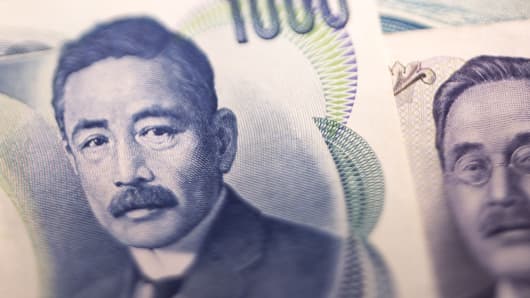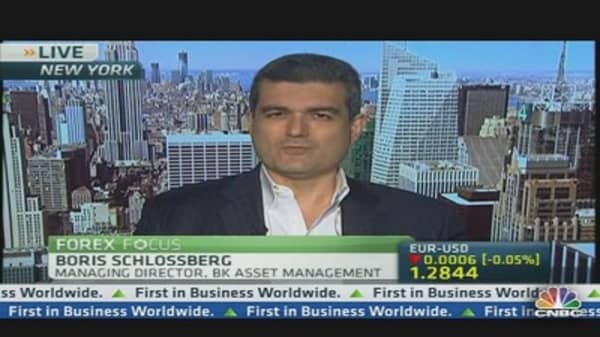Investors shrugged off expectations for big, bold stimulus from Japan's central bank on Thursday, as the yen managed to cling onto near one-month highs against the U.S. dollar.
The currency last traded at the 93 handle against the dollar, just 0.5 percent shy from Tuesday's near one-month high of 93.5 as market participants turn skeptical if the Bank of Japan (BOJ) can deliver on its promises of open-ended asset purchases.
(Read More: Will Japan's Central Bank Deliver or Disappoint?)
"I think they (BOJ) will disappoint. They're not going to move as fast as the market would like. Kuroda has to deal with a board that was appointed by the previous government and we know that this board is not inclined to step up monetary easing a lot," said Richard Martin, managing director at IM Asia on CNBC's "The Call."





